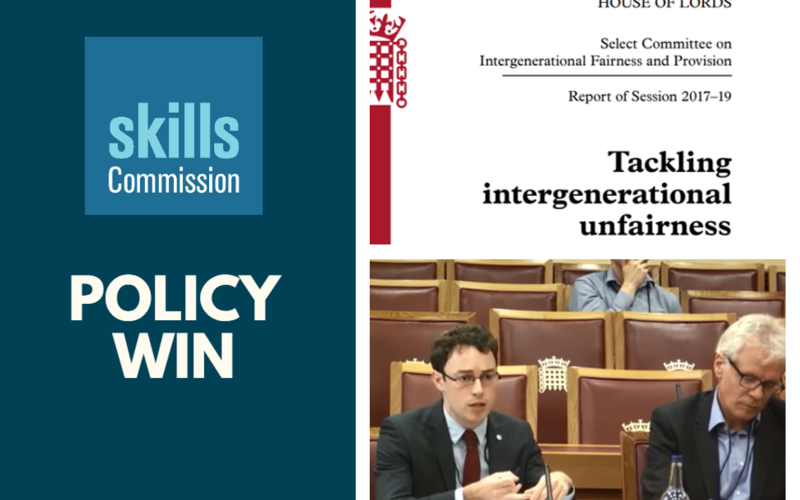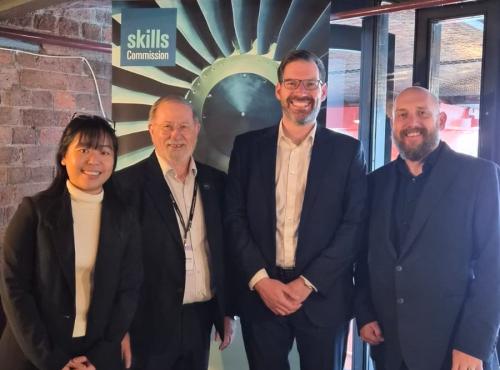Skills Commission Policy Win
Lords Committee cites investing in FE and lifelong learning as crucial for securing intergenerational fairness
Back in October I was invited to provide evidence before the House of Lords Intergenerational Fairness Committee. At the session I raised the importance of further education and lifelong learning in tackling inequalities and I’m pleased to see the Committee have similarly emphasised their role in their newly published inquiry report.
Alongside a suite of recommendations on housing, taxation and improved data collection, the Committee have called for a substantial increase in funding for further education and the expansion of the National Retraining Scheme with greater incentives for participation.
In giving evidence to the Committee I drew upon the findings from the Skills Commission’s Spotlight series which explored the experiences of older workers and young disadvantaged learners in the skills system. I was keen to stress how initial educational disadvantage can be compounded across the generations and the resulting need for policymakers to be acutely aware of the potential long-term impact of their policy decisions. The Committee’s recognition of this – especially in their calls for increased funding for FE – represent a result for all of us who feel strongly about the damaging inequalities that pervade our education system.The call for properly investing in our FE system is certainly growing louder. If the rumours around the Augar Review are to be believed then the government will soon be presented with a clear case for a programme of reforms which shift us from a ‘frontloaded’ education system, to one that provides opportunities across the lifecycle.
While growing consensus on FE funding and movements towards many of our other Spotlight recommendations - the government softening their position on GCSE retakes for example - is encouraging, the cultural shift required across government, education and the labour market should not be underestimated. That’s why in my evidence I called for political changes to facilitate this journey. Appointing a Minister for Lifelong Learning, shared between the Departments for Education, and Work and Pensions, must be the first step taken by a forward looking government. Such a minister would be central to better aligning employment and education policy while advancing lifelong learning in a period where working lives are becoming longer. This cause should also be championed at the local level, with elected mayors and LEPs assessing the demography of their areas and being empowered to respond to those needs.
2019 began with a celebration of the centenary of the Ministry of Reconstruction’s seminal report into adult education at the FETL Winter Symposium. There has since been a buzz of policy activity in this area. Despite the legislative deadlock created by Brexit, I hope this could be the year we embark upon a new approach to lifelong learning and harness its potential to improve intergenerational mobility.
Simon Keller, Head of Education and Skills, Policy Connect
Our thanks to the following organisations for their support with the Spotlight Series: Learning and Work Institute, Skills and Education Group, Edge Foundation, AELP, Gatsby, AAT, LCBT, and Hadlow Group





